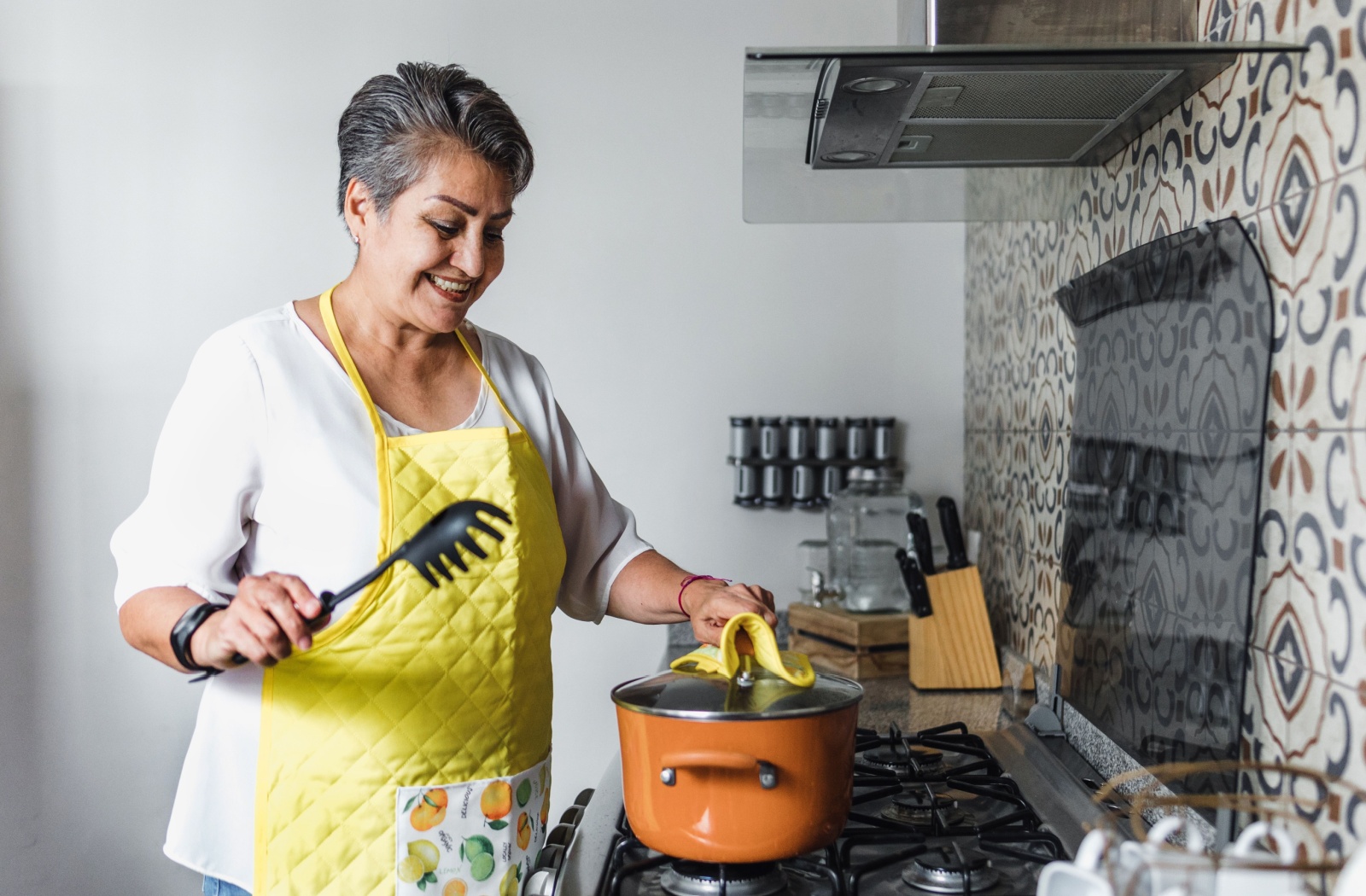Living with dementia doesn’t mean every day is filled with struggle. There’s still a space for fun, and finding enjoyable activities for memory care residents can be beneficial for their cognitive function and emotional well-being.
Memory care activities can include music therapy, gardening, cooking, and more. Here are 10 ways for your loved one to get the most out of their time in our community!
The Importance of Engaging Activities
Activities designed for memory care residents are more than just ways to pass the time. They’re vital tools that can help improve cognitive abilities and boost emotional health.
It’s essential to keep in mind that every individual is unique, and what works for one person may not work for another. Additionally, some activities can be more difficult for certain levels of dementia. Try a variety of activities and keep an eye on your loved one’s reactions to determine which ones are most suitable.
1. Music Therapy
Music has the power to unlock memories and emotions like few other things can. Playing familiar songs from your loved one’s past can spark joy and nostalgia, potentially stirring up long-forgotten memories. Music therapy can also include sing-alongs or simple instrument playing, providing a creative outlet and social interaction.
2. Sensory Bins
Sensory bins are filled with objects of different textures, scents, and colors. They can stimulate the senses and promote cognitive engagement. These bins can be themed around seasons, holidays, or any subject that might resonate with the residents, providing not just mental stimulation but also a topic for conversation.
3. Gardening
Participating in gardening, whether in an outdoor garden or with indoor plants, offers both physical activity and the satisfaction of nurturing life. Gardening activities can be tailored to the individual’s mobility and skill level, so everyone can enjoy the beauty and tranquility of connecting with nature.
4. Board Games & Puzzles
Puzzles are a fantastic way to engage the brain in problem-solving. From jigsaw puzzles to crosswords, they can be adapted to suit your loved one’s abilities and preferences. If your loved one likes board games, they’re great for improving memory and cognitive skills. Some residents may have a soft spot for classic games, but there’s also a whole world of more recently published board games with a wide range of themes, complexity, and designed with accessibility in mind.
5. Art & Craft Projects
Creating art allows for expression and creativity without the need for words. Art projects can be as simple as coloring or as complex as building and painting, depending on the resident’s interest and ability. These activities not only foster creativity but also improve fine motor skills.
6. Memory Books
Developing memory books involves compiling photos, mementos, and stories from the resident’s life. This activity provides an opportunity for reminiscence and can be a comforting bridge to past experiences while encouraging conversation and connection with others.
 7. Cooking and Baking
7. Cooking and Baking
Participating in cooking or baking allows people to engage in a familiar and rewarding activity. Preparing simple recipes together can stimulate the senses, evoke memories, and result in a delicious shared experience. Making food together and providing food to the people you love is an ancient human activity, and satisfies a fundamental social need.
8. Simple Exercise Routines
Physical activity can be adapted to the abilities of memory care residents, such as gentle yoga, walking, or chair exercises. Getting up on your feet is about more than physical health, exercise can significantly improve mood, balance, and independent functioning, contributing to a better quality of life.
9. Pet Therapy
Who doesn’t like animals? Visits from furry friends can bring immense comfort and joy to memory care residents. Pet therapy sessions, whether with visiting animals or resident pets, offer companionship and unconditional love, reducing stress and promoting a sense of well-being. Many memory care residences provide dedicated pet therapy services with scheduled visits from professionals.
10. Group Discussions
Organizing group discussions around topics of interest to the residents can foster a sense of community. This could include book clubs, film groups, or discussing current events. Even individuals with significant memory impairment can enjoy listening to others and interacting to the best of their ability.
Thriving in Memory Care
Incorporating these memory care activities into the lives of residents can help them feel more in control of their lives. Each activity is designed to provide stimulation, joy, and a sense of accomplishment, contributing to a fuller, more vibrant life experience.
At Ralston Creek Neighborhood, we’re committed to providing our residents with engaging, beneficial activities tailored to their needs. If you’re considering memory care options, contact us today to learn more about how we prioritize the well-being of our residents through thoughtful, interactive programming.


